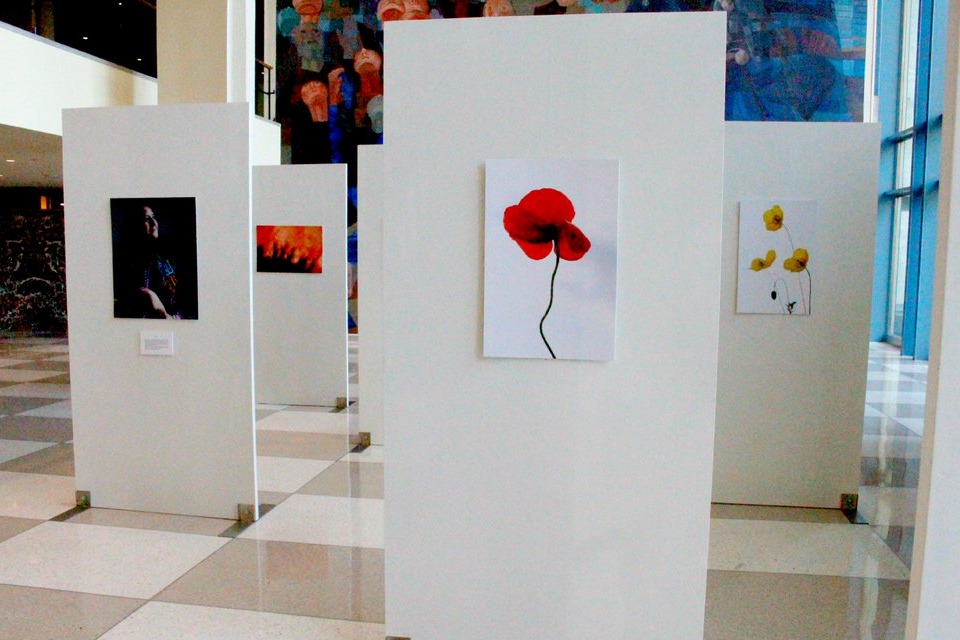"Photographer Lee uses the poppy, in all its colours, as a metaphor for women caught up around the world in war."
Statement by Ambassador Matthew rycroft of the UK Mission to the United Nations at the Opening Ceremony of the "Poppies: Women and War" Photography Exhibit

Thank you very much to everyone for coming, it’s wonderful to see such a large and enthusiastic turnout for this exhibition. So ladies and gentlemen, your excellencies, a very warm welcome and I’m delighted that you’ve all been able to join us today to mark the opening of the Poppies: Women and War exhibition. I welcome our partners here today from the Canadian mission, from UN Women and from Murray Edward College.
Today so many nations around the world remember their war dead; the 11th of November, Remembrance Day. Several of us have just come from over the road from the UN Church where we marked the sacrifice and bravery of our fallen. Whether in the fields of Flanders a century ago, or in the conflicts of recent years, the United Kingdom will always remember the brave men and women who gave their lives so that others could live theirs.
And such sacrifice is now synonymous with the poppy that we wear today, and that we see in the exhibition behind me. I’m pleased to see so many of you here wearing one today. In the UK, the poppy is much more than a symbol. It is also a vital fundraising tool for the Royal British Legion, whose work helps to care for half a million members of the armed forces and their families. From those struggling with bereavement or injury, to our eldest veterans striving to retain their independence and mobility, every poppy helps. So I encourage you all to join me and do your bit.
But it is the powerful image of the poppy that we celebrate today through the work of UK photographer, Lee Karen Stow. For her, the poppy has a unique significance to the subject of this exhibition, which is ‘women in war’.
Lee uses the poppy, in all its colours, as a metaphor for women caught up around the world in war. For the poppy survives and generates new life when everything else has been destroyed. Its seed, often dormant for decades, grows into a flower when exposed to light even after great upheaval or trauma.
For the UK, her work is a powerful reminder of how much more we have to do on the UN agenda that we call Women, Peace and Security. We’ve come a long way; last month saw the adoption of a landmark Security Council resolution– a worthy successor to 1325; and with it the most popular Open Debate in the Security Council’s history – with 113 different countries speaking over two days. And we made significant contributions, financial and practical, as Member States and as representatives of different parts of the UN that will advance this Women, Peace and Security agenda in the coming years.
And we want to see this ambition realised. We want this agenda to be championed by Member States, across the UN and by regional organisations, and taken forward by this Secretary-General and the next one. We hope that she will need to focus on bringing the UN together, and really concentrating on implementing this agenda – taking forward the commitments outlined in the High-level Review.
In doing so, we can address the unique suffering of women affected by war. Because in our remembrance, we should also look to the future, so that we can strive for a world free from conflict, and free from the devastating impact that war has on everyone, especially women and girls.
Thank you very much.